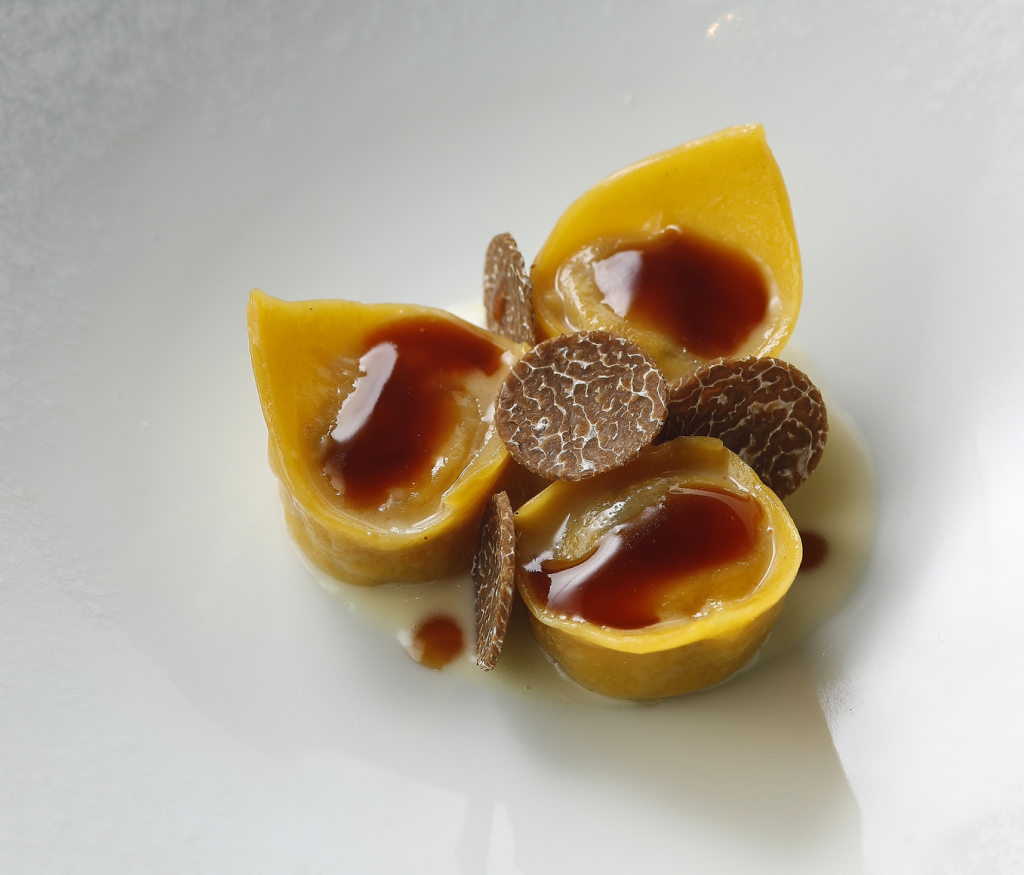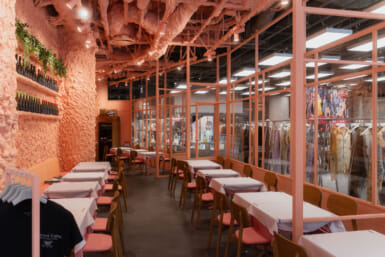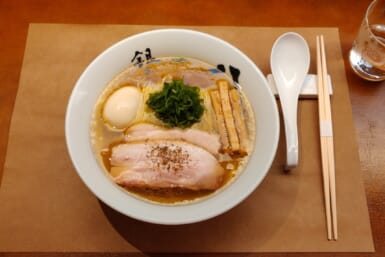“Walk in someone else’s shoes, or at least eat their food,” said the late chef Anthony Bourdain. The man who shared meals with countless people around the globe knew in his gut that food is a universal language, one that good cooks deploy eloquently. Carmine Amarante, executive chef of the Armani Tokyo group, who earned his first Michelin star last year, fluently conveys his Neapolitan heritage to Japanese diners – through food, of course. “When you see a dish, you get an image of who made it,” he says, confident that his elegant creations embody his identity as a chef.
Italy and Japan meet on a plate
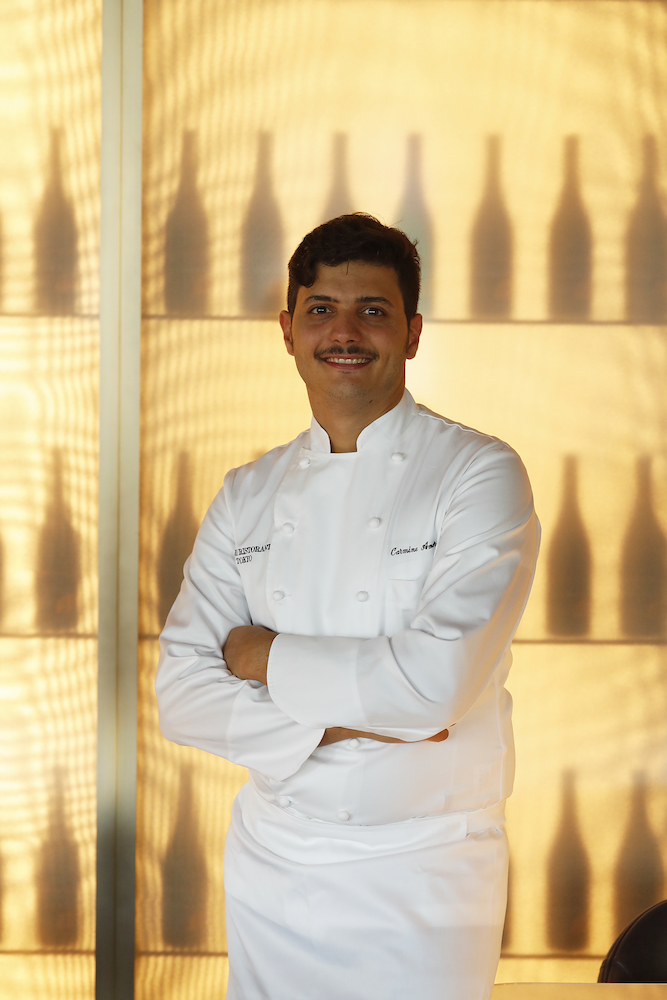
Chef Carmine Amarante © Armani Ristorante
“People think Italian food is just pasta and pizza, but it’s so much more,” he points out, funnily enough, as we chat over a pizza margherita in a trattoria (an Italian restaurant serving simple, traditional fare) in Tokyo. “I want our cuisine to be seen as fine dining on a par with that of French chefs.”
Amarante’s mission isn’t only to cook sublime food but to tell the stories behind Italian dishes, many of which are unknown to the Japanese public, while embracing local influences. A good example is his cacio e pepe risotto – inspired by a Roman dish in which pasta is served with cheese and pepper – crowned with sea urchin from Hokkaido: “Italy at the base, and Japan on top.” The dish will be served at Ginza Tower’s Armani Ristorante with the launch of Amarante’s menu on September 24.
The young chef is especially enamoured of Japanese ingredients. “If a chef makes a great dish, it’s because there’s a great product behind it. That’s what cooking is about: a good market, shopping for groceries in the morning. Take my grandmother and mother; they buy different things in different places. There’s a reason for that.”
A one-way ticket from Naples to Tokyo
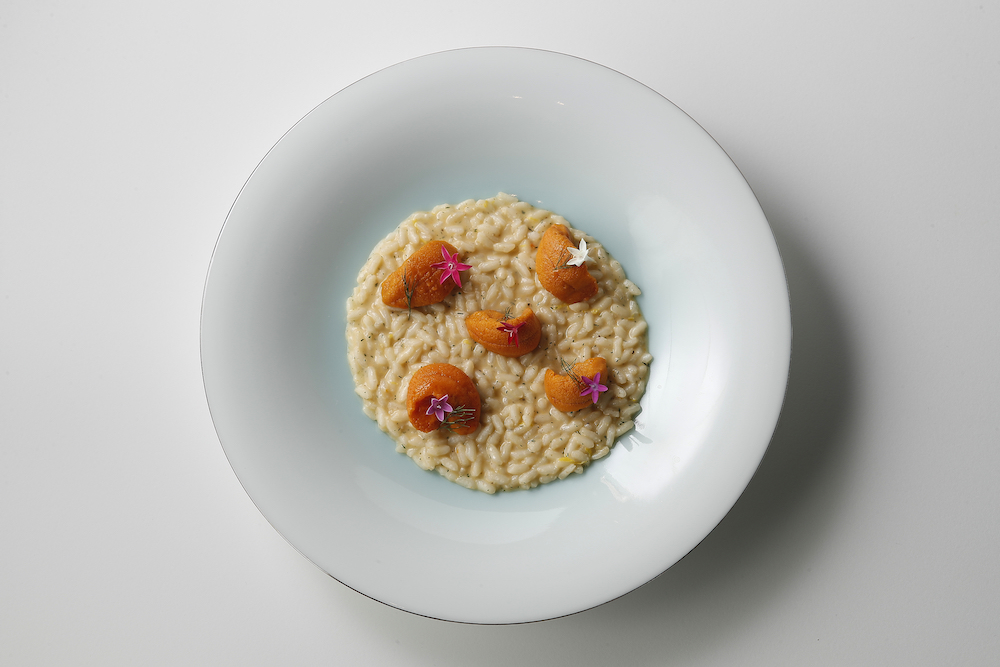
Cacio e pepe risotto with sea urchin from Hokkaido © Armani Ristorante
Amarante owes his love for cooking to his grandmother and mother, with whom he spent hours preparing meals for family gatherings. “Even though I work at a Michelin-star level, whatever I cook, it’s always connected to something they would make.” Unsurprisingly, the dish that he feels represents him the most is dedicated to his mother. “I love genovese, a meat and onion-based pasta sauce ever-present in Neapolitan trattorie and that my mum always cooks for me. I make tortellini (a type of filled pasta) stuffed with genovese on a fondue sauce base, accompanied by an onion reduction and truffles.”
Amarante’s career started early, when he was just 16. After a first stint on the Amalfi coast, he made his bones in kitchens in southern Italy, Spain, the UK and the US before working in three-Michelin-star La Pergola in Rome under chef Heinz Beck. Looking out from the restaurant’s spectacular view over Italy’s Eternal City, a distant capital was on the horizon. “I wanted to come here, I felt it was the only city that could complete me,” Amarante says about his move to Tokyo to become executive chef of Heinz Beck’s namesake restaurant. A gamble, given that he was only 29, that paid off generously when he received his first Michelin star.
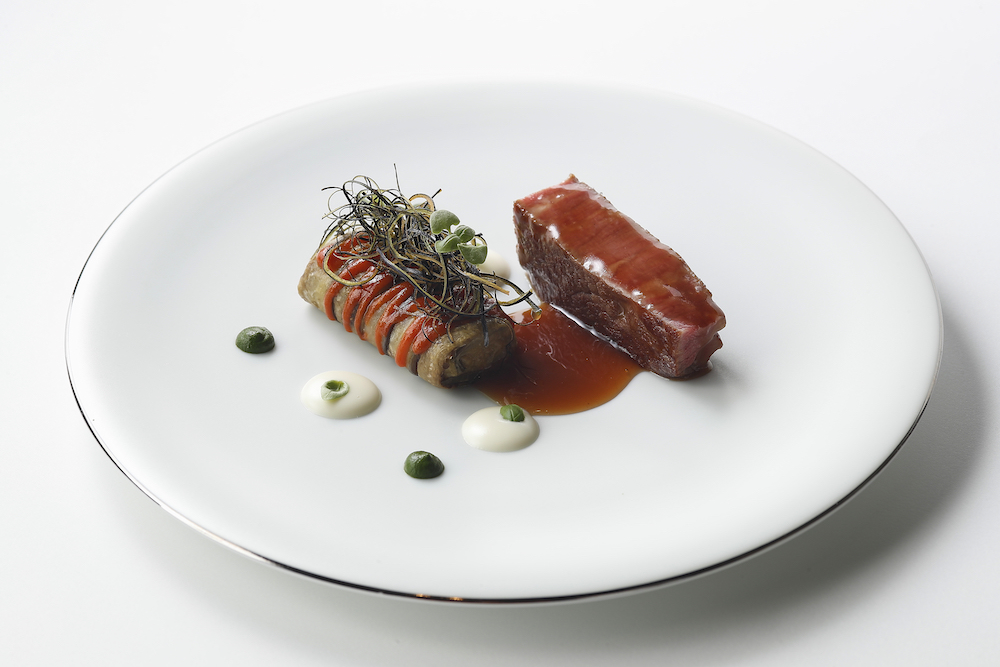
A reinterpreted parmigiana, a southern Italian dish consisting of layers of aubergine, mozzarella and tomato sauce, accompanied by wagyu beef © Armani Ristorante
After the restaurant’s definitive closure on the heels of the Covid-19 state of emergency – “a tough blow” for the chef – he has embarked on a new, even bigger adventure and is now in charge of Ginza Tower’s Armani Ristorante as well as Emporio Armani Caffè in Aoyama, both in Tokyo.
Dreams
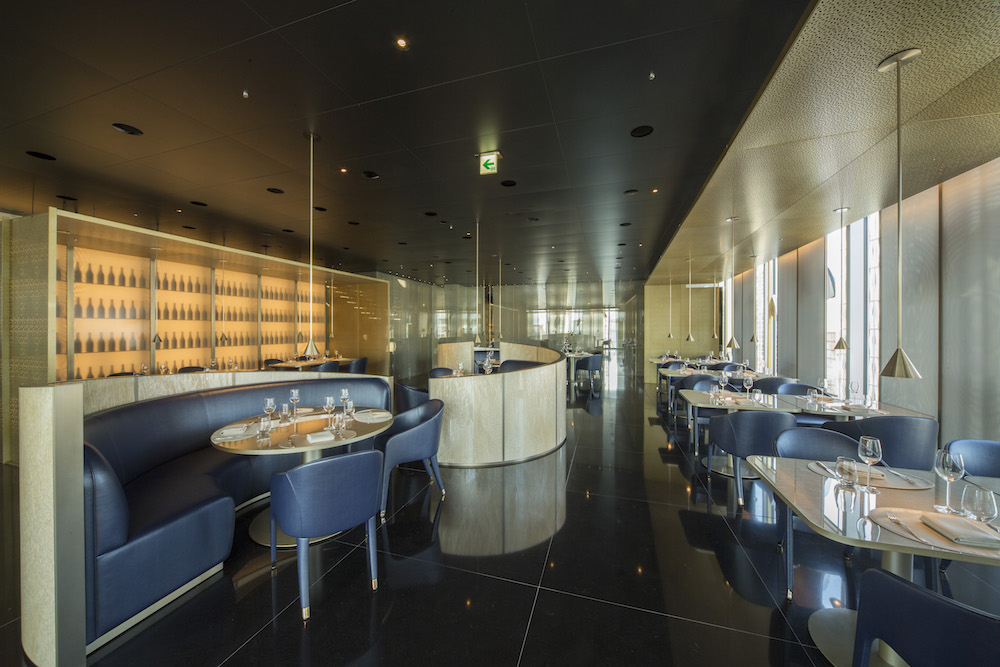
Armani Ristorante, 5-5-4, Ginza, Chuo-Ku, Tokyo. Open for lunch and dinner from Tuesday to Sunday
“Japanese culinary culture reflects my identity as a chef, which is based on ingredients, flavor and technique – as simple as that.” Amarante, who would recommend the experience of working in Japan to anyone, recognizes that Tokyo has been key to his growth, as he’s found renewed drive to live by his philosophy: “If I make a good dish, tomorrow I want to create an even better one.”
Yet, he remains grounded. “I’m lucky, some of my dreams have already come true, like taking on this new role with Armani and receiving my first Michelin star. In the end, what I aim for is a restaurant where I can enjoy my customers and make great food using local ingredients.” A simple aspiration for an ambitious young chef. “My job is to move people. That’s it. I’m here to cook and communicate love.”
Feature image: Tortellini alla genovese by Carmine Amarante © Armani Ristorante

